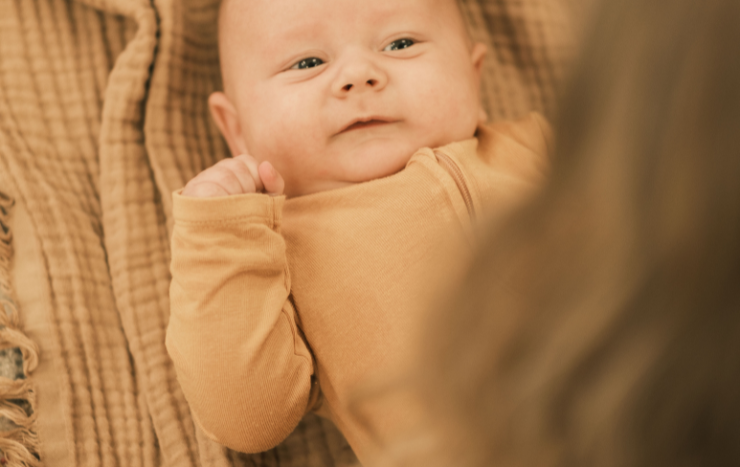Did you know that 1 in 2 families in the U.S. struggle to afford diapers? Diaper need is a real, often overlooked issue that affects the health and well-being of babies and places immense stress on parents. Imagine juggling the pressures of new motherhood while worrying about how to afford this basic necessity. And the guilt and shame associated with it makes those in need less likely to reach out for help.
The True Cost of Diapers
First, consider this: babies typically go through 6-12 diapers per day. For a single child, that means about 2,000 to 3,000 diapers in their first year alone. Diapers aren’t cheap, with a family often spending $80 to $100 per month per child. That’s a significant financial strain, especially for families living paycheck to paycheck.
In fact, the National Diaper Bank Network reports that nearly half of families experience diaper need, leaving many to make tough choices. Imagine having to choose between buying diapers and paying for food or other essentials—no mom should have to face that dilemma. Unfortunately, there’s no federal program to help. SNAP (food stamps) and WIC don’t cover diapers, so families have to scrape together funds from other sources.
The Impact on Moms and Babies
Diaper need doesn’t just affect a family’s wallet—it impacts a baby’s health and a mom’s emotional well-being. When families don’t have enough diapers, babies might wear one diaper for too long, leading to painful diaper rashes, infections, and other health concerns. A lack of clean diapers also means that babies are less likely to be accepted into daycare programs, which often require parents to provide an adequate supply. This makes it difficult for parents, particularly moms, to return to work or school, further perpetuating the cycle of poverty.
The emotional toll on moms is also profound. As a mom, you want to provide the best care possible for your child, but when you’re facing diaper need, the stress can be overwhelming. Feelings of guilt, shame, and helplessness are common, and these emotions can build up, leading to burnout and even postpartum depression.
In a 2023 survey by the National Diaper Bank Network, moms shared their stories of cutting back on basic necessities, skipping meals, or reusing disposable diapers just to make it through the month. This is a crisis that often goes unnoticed, yet its effects ripple through communities.
The Role of Diaper Banks
This is where organizations like the National Diaper Bank Network (NDBN) come in. Diaper banks are nonprofit organizations that collect and distribute free diapers to families in need. They provide a safety net for parents who are struggling, ensuring that every baby has access to clean diapers.
But diaper banks can only do so much. They rely heavily on donations from the community—both in diapers and in dollars. Without adequate support, diaper banks can’t meet the growing demand, which is why it’s crucial for us, as a community of moms, to step up and help where we can.
What Can You Do?
So, how can we help moms facing diaper need? There are several ways to make a meaningful difference:
- Donate: Even a small pack of diapers can make a huge impact on a family in need. If you can, donate diapers to your local diaper bank or organize a diaper drive within your community.
- Volunteer: Diaper banks often need helping hands. Consider volunteering your time to collect, sort, or distribute diapers to families.
- Advocate: Spread the word about diaper need. Share information on social media, talk about it with your friends, and advocate for policies that support families in need. The more awareness we create, the more change we can inspire.
- Support Legislation: Push for government policies that address diaper need. That includes supporting initiatives for affordable childcare, paid family leave, and programs that help alleviate the financial strain on parents.
Diaper need is an invisible crisis affecting millions of families across the country. As moms, we know the emotional and physical toll this can take—not just on our babies but on us as well. It’s time to take action, whether that’s donating diapers, volunteering at a local diaper bank, or advocating for systemic change.
Supporting other moms doesn’t just mean giving them advice; it means showing up for them when they need it most. Together, we can ensure that no mom has to worry about something as basic as diapers. Because when we support each other, we build a stronger, healthier future for all our children.
Want support that actually gets it?
Find your local New Mom School and connect with a community of moms, experts, and real talk that makes the fourth trimester feel a little less overwhelming.
Wishing there was a New Mom School closer to you?
You might be the one to bring it there. Learn how to open a location in your town.

